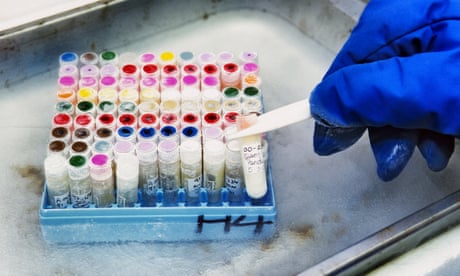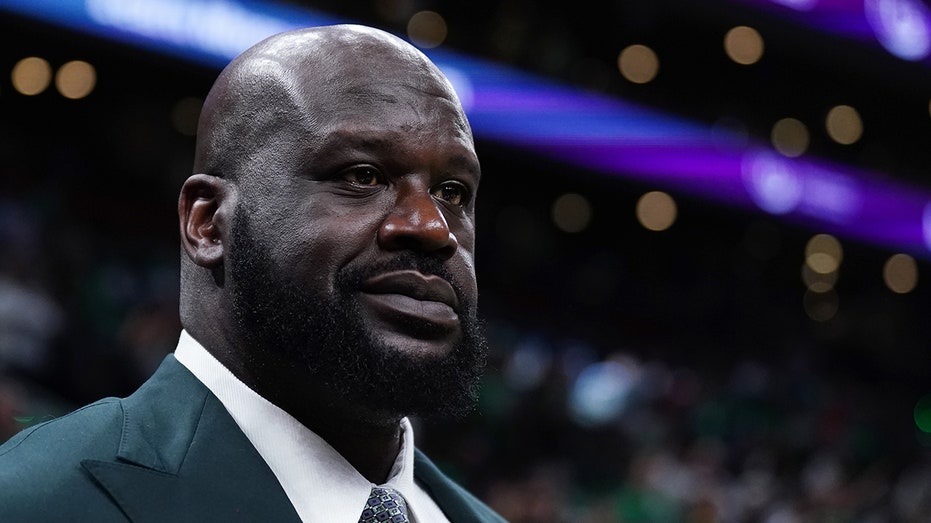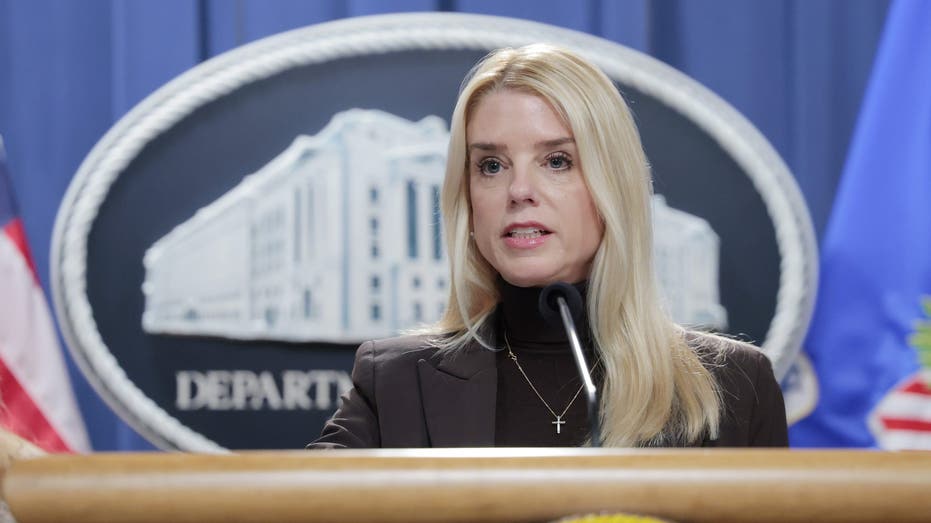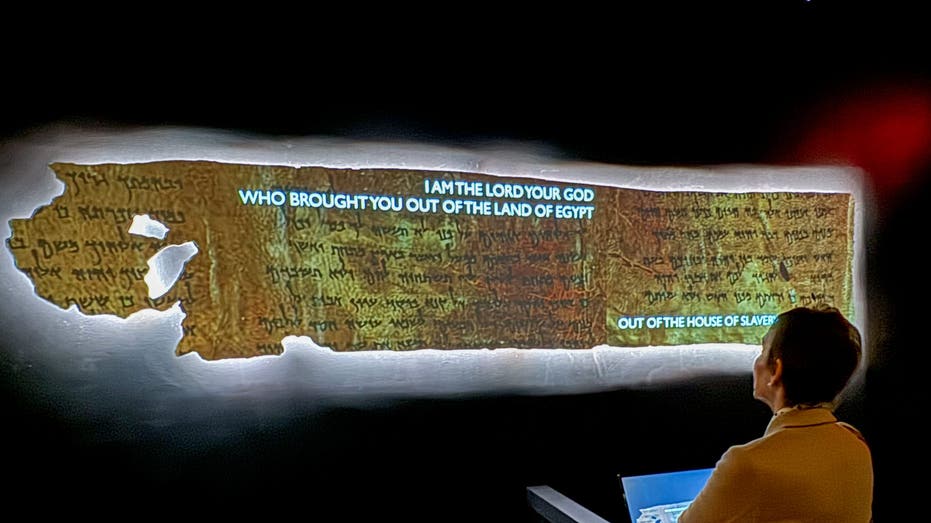- by foxnews
- 07 Apr 2025
?We can?t save everybody?: could biobanking offer Australian animals a last hope against extinction?
‘We can’t save everybody’: could biobanking offer Australian animals a last hope against extinction?
- by theguardian
- 12 Dec 2021
- in news

On 15 December 2014, inside a repurposed shipping container in the Atlanta Botanical Garden in the USA, Mark Mandica heard an unfamiliar animal call.
It was a reddish-brown frog about the size of a peach, called Toughie. He had lived silently for nine years since arriving from Panama - where the highly infectious chytrid fungus disease had arrived, leaving swathes of dead frogs in its wake.
He was believed to be the last Rabbs' fringe-limbed tree frog in the world.
"Then it struck me that this frog was still vital and sounded very strong, and was singing out for a mate that would never come."
When Toughie's heart stopped on 26 September 2016, the species died out. The next morning, across the country in San Diego, amphibian expert Natalie Calatayud was presented with Toughie's testicles.
This strange gift was part of a plan to use "biobanking" for conservation. The idea of freezing biological material is not new, having been used in medical research and livestock breeding programs for decades. But by using liquid nitrogen to lower animal tissues to -196C, where almost all processes of life within a cell halt, scientists hope to buy more time for assisted reproduction to help a captive colony, to investigate a devastating disease, or preserve DNA for cloning.
Toughie now exists as 16 vials of precious mush, awaiting a time when technology - and potentially an unknown surviving mate - allows for the revival of the lost species.
Unlike the Rabbs' tree frog, most species disappear years before humans realise, along with any chance to preserve their genetic material.
A group of scientists in Australia, in the grip of one of the world's worst extinction crises, is hoping that some of our own endangered species can avoid this fate. They are calling for a national operation to freeze our native wildlife before that chance is lost.
Australia was the first country to attempt a truly national biobank: the Animal Gene Storage and Resource Centre of Australia (now the Australian Frozen Zoo) was created in 1995.
But funding and donations dried up, says its current director, reproductive expert Peter Temple-Smith. It could never fulfil its potential. The "zoo" exists as a two-metre-tall cryotank that's been shuffled around Monash University, reliant on volunteer staff formally employed in other roles.
Meanwhile, co-founder and former director Ian Gunn says biobanking for conservation has been gaining popularity overseas.
"Other countries have moved ahead, and Australia has completely lagged behind."
Alongside the original, and languishing Frozen Zoo, there are now scattered facilities that cryo-preserve animal samples in pockets across the country at some zoos, universities, and museums.
In March, five conservationists met with then threatened species commissioner Sally Box arguing that these must become a coordinated network - with standardised operating procedures for the technical work, dependable funding to ensure the facilities can be maintained, and one database to log every existing sample so they can be fully utilised in research.
Even with their wish to create a national strategy for proactively "banking" priority species, it will be too late for some: the government itself predicts 280 animals and plants will be extinct by 2039.
For these animals, their suspended cells may be the species' last hope.
Reproductive biologist Rebecca Hobbs, of the Taronga CryoDiversity Bank in New South Wales, did not attend the meeting with Box, but says national operating procedures for collecting, storing, and using samples would be crucial.
Biobanking, she stresses, must work with, not replace, habitat protection and captive breeding.
In captive breeding programs, variety is literally the spice of life: as the number of animals dwindles so does the genetic diversity of the group. Eventually, inbreeding leads to fertility and other health issues and the group is doomed - unless new genes are introduced.
This is where advocates say biobanking is useful: in the US, researchers have reversed the black-footed ferret population out of an inbreeding spiral using frozen sperm from the "founding ferrets", and even cloned a ferret from skin frozen in the 1980s.
Banking species in the threatened-to-near-threatened categories may be most cost-effective, Hobbs says. "You may get more bang for your buck if you apply it to species that haven't declined so much that the genetic variability has declined too dramatically for it to work."
Now back in Australia, Calatayud says current conservation strategies aren't working, nor being done at the necessary scale.
"The need for captive populations to maintain threatened species is growing at an alarming rate, disproportionate to the funding available and the logistical availability of space and staff. With biobanking, you could manage a smaller captive population by inserting new genetics whenever you needed to."
She says that biobanking domesticated species has been long accepted. Australia also has a national network to bank seeds of native plants.
Deciding which species get banked will be gruelling. Some won't make it.
Conservation biologist Simon Clulow, of the University of Canberra and Newcastle University, says that amphibians and reptiles are the "most imperiled vertebrate classes on Earth" but have had the least attention when it comes to biobanking.
Despite not knowing how to successfully freeze - or bring back - every species, he's confident the remaining hurdles will be solved given the pace at which the technologies are evolving.
Some years ago Clulow and his father, John, helped produce live embryos of the extinct gastric brooding frog from tissue samples frozen decades ago.
John Clulow, who attended the Canberra meeting with Box, feels cautiously optimistic that momentum is building toward a national bank.
An ecologist with expertise in reproductive technologies, he and colleagues at the University of Newcastle recently received federal funding to collect sperm from frogs in bushfire-affected areas, for use in captive breeding programs at Taronga.
He says some conservationists worry that habitat protection will lag if the species in it have been preserved.
"The other thing is, philosophically, conservationists are often about preserving animals within habitats, whereas this is a technological approach and that's not as culturally embraced."
Reproductive biologist Steve Johnston says it's too late to be hands-off.
"With the koalas in south-east Queensland, we're down to the point where if you just leave them alone, they're just going to die," says Johnston, of the University of Queensland.
"Even with all the funding and publicity that they get, they're still struggling."
Less charismatic species, like reptiles and amphibians, tend to attract less funding and interest. Johnston is a pioneer of the technique for successfully extracting sperm from the largest reptile alive. Lacking funding for specific facilities, he worked with Koorana Crocodile Farm.
"If we could develop [the method] in the saltwater crocodile, we could apply it to other species."
His work involved enticing a 4.5m croc up to a fence with a dead chicken, putting a noose around its snout, sedating it, and hoisting the croc - a predator that has remained unchanged for 65 million years - into the air with a crane.
Once it was laid across the back of two flat-tray utes, Johnston could crawl underneath to extract the penis from the slit at the junction of its legs and tail, and "milk" the sperm. The technique is now being used by different groups.
The group has not heard from the commissioner's office since their March meeting. Box left the role in October and a spokesperson for the Department of Agriculture, Water and the Environment did not answer whether acting commissioner Fiona Fraser was briefed about the proposal.
They say the Threatened Species Strategy 2021-31, which includes one mention of biobanking, "recognises the importance of being prepared."
Mark Mandica is also preparing. He has mixed feelings about reviving extinct species; the need to remove them from the wild for their survival, he says, is "profoundly dark".
But to hear a Rabbs' tree frog call again would fill his heart.
"Sometimes, I think about how maybe there's a remote population of them out there, gliding from tree to tree, that just haven't been found yet."
- by foxnews
- descember 09, 2016
Ancient Ten Commandments fragment of 2,000-year-old manuscript to go on display at Reagan Library
The "Dead Sea Scrolls" exhibit, announced at the Ronald Reagan Presidential Library and Museum, features ancient Jewish manuscripts, plus the rarely seen Ten Commandments Scroll.
read more


